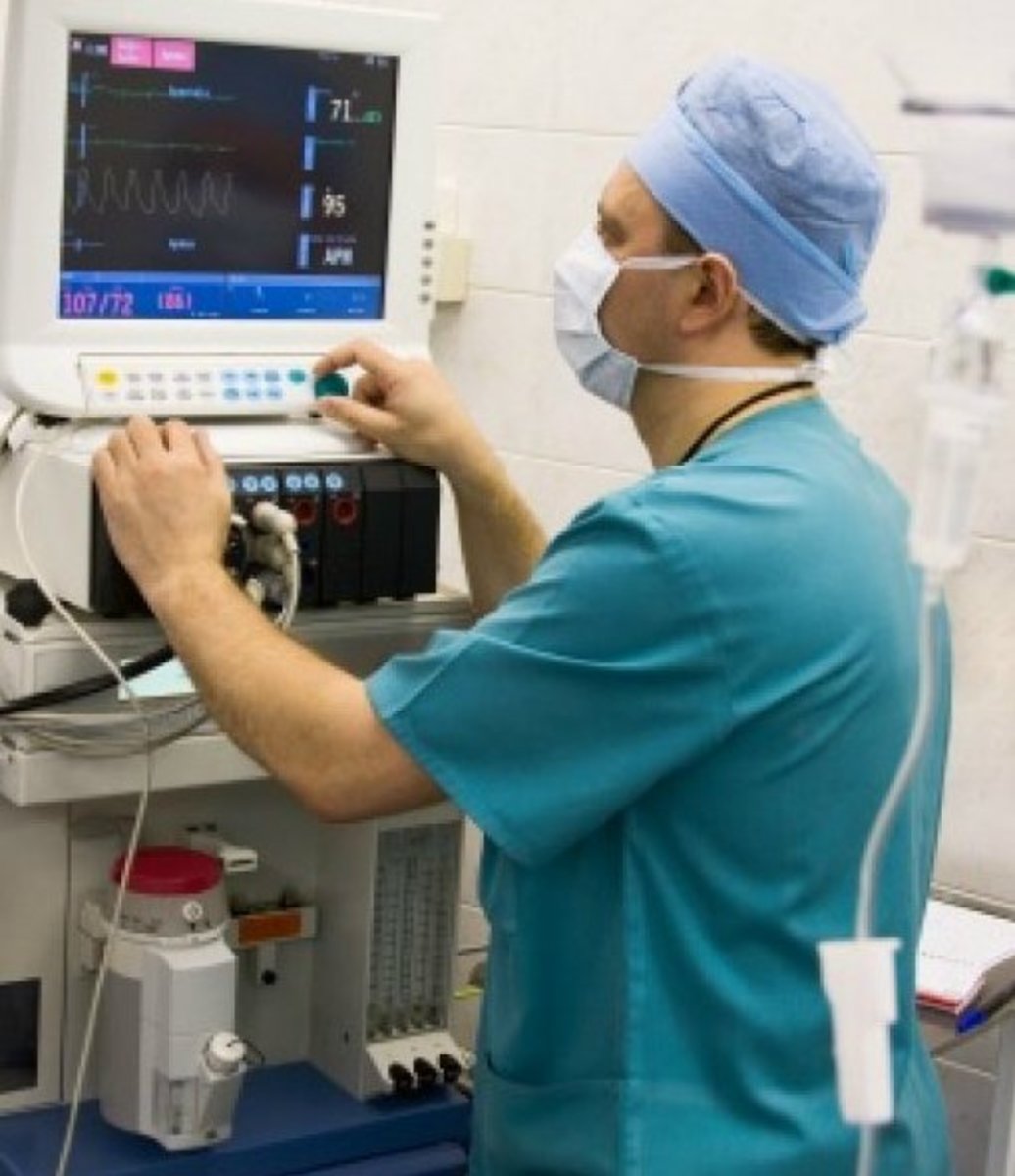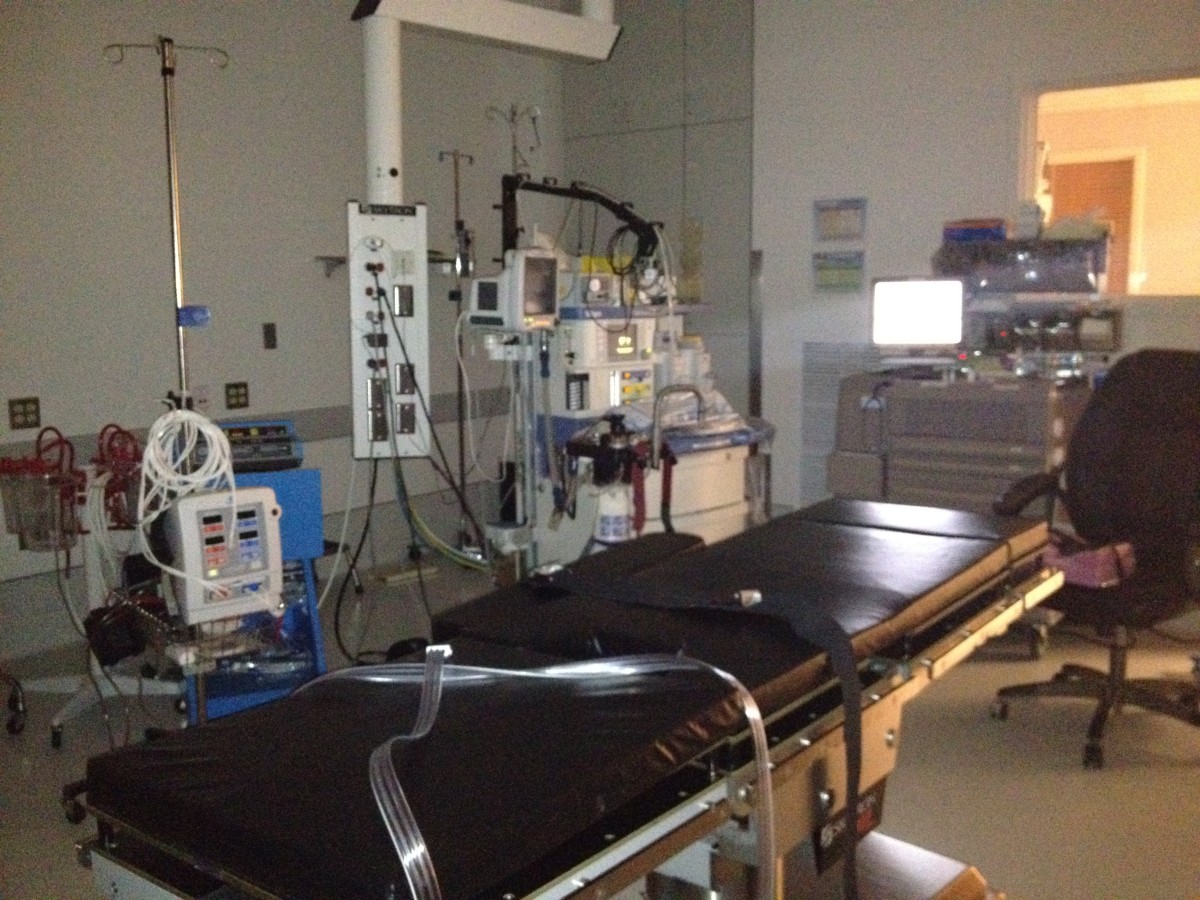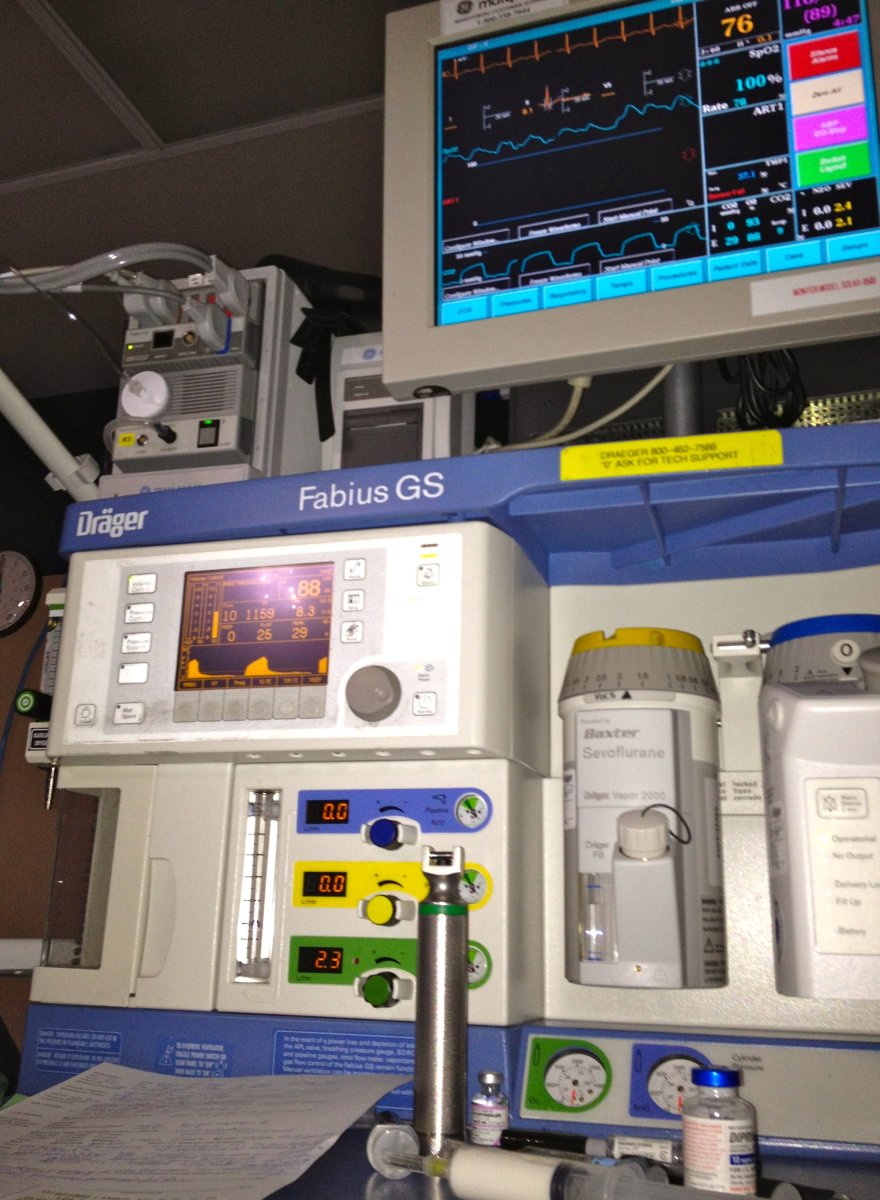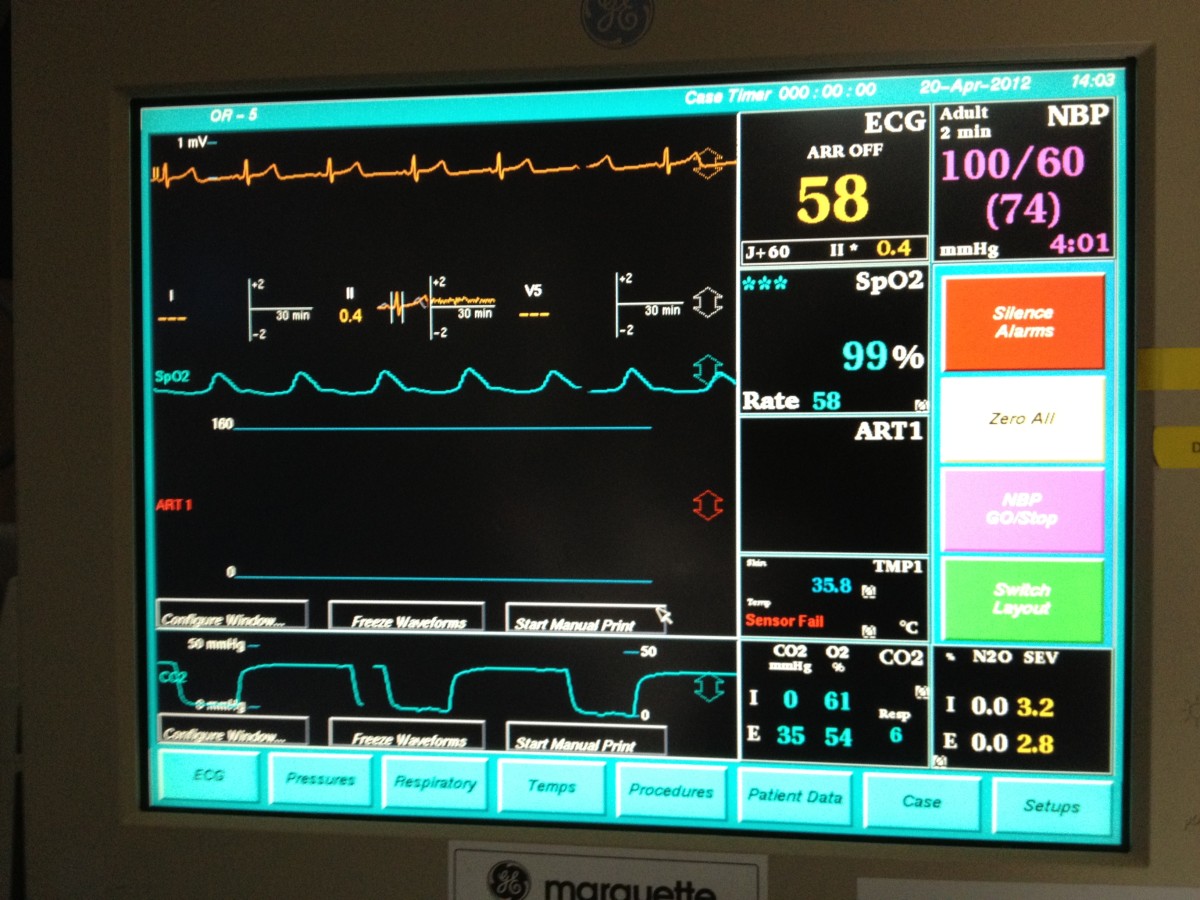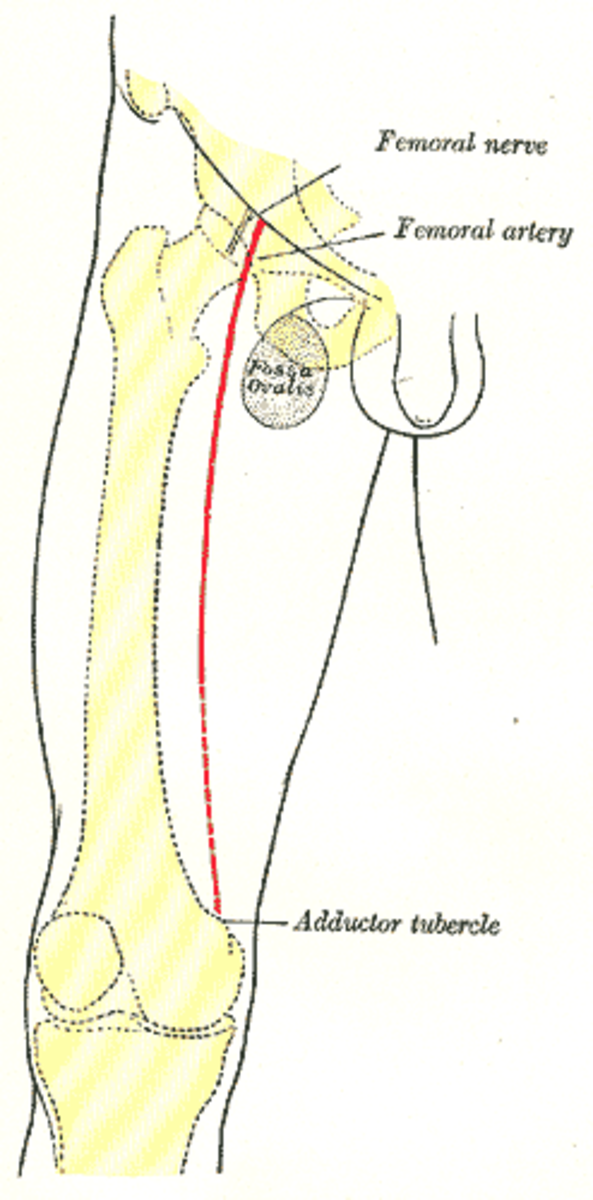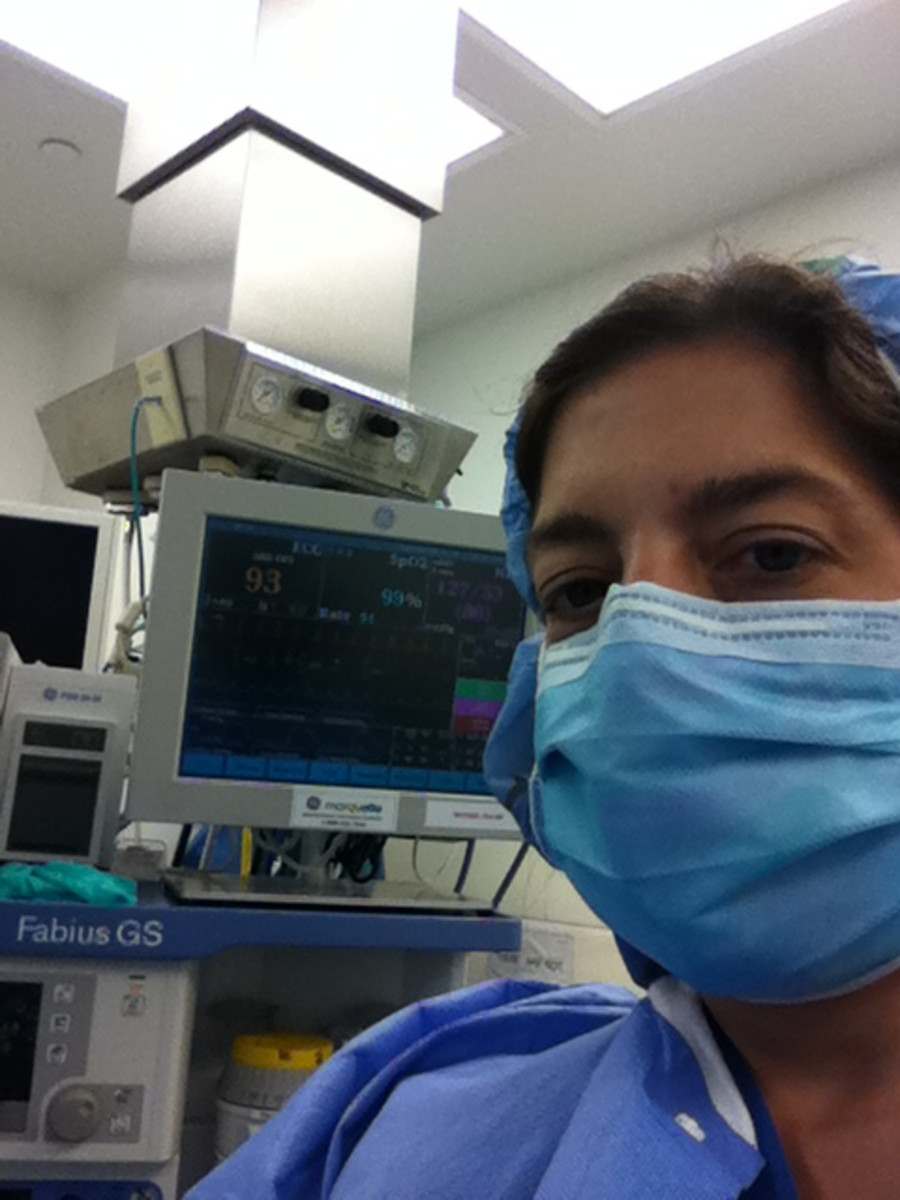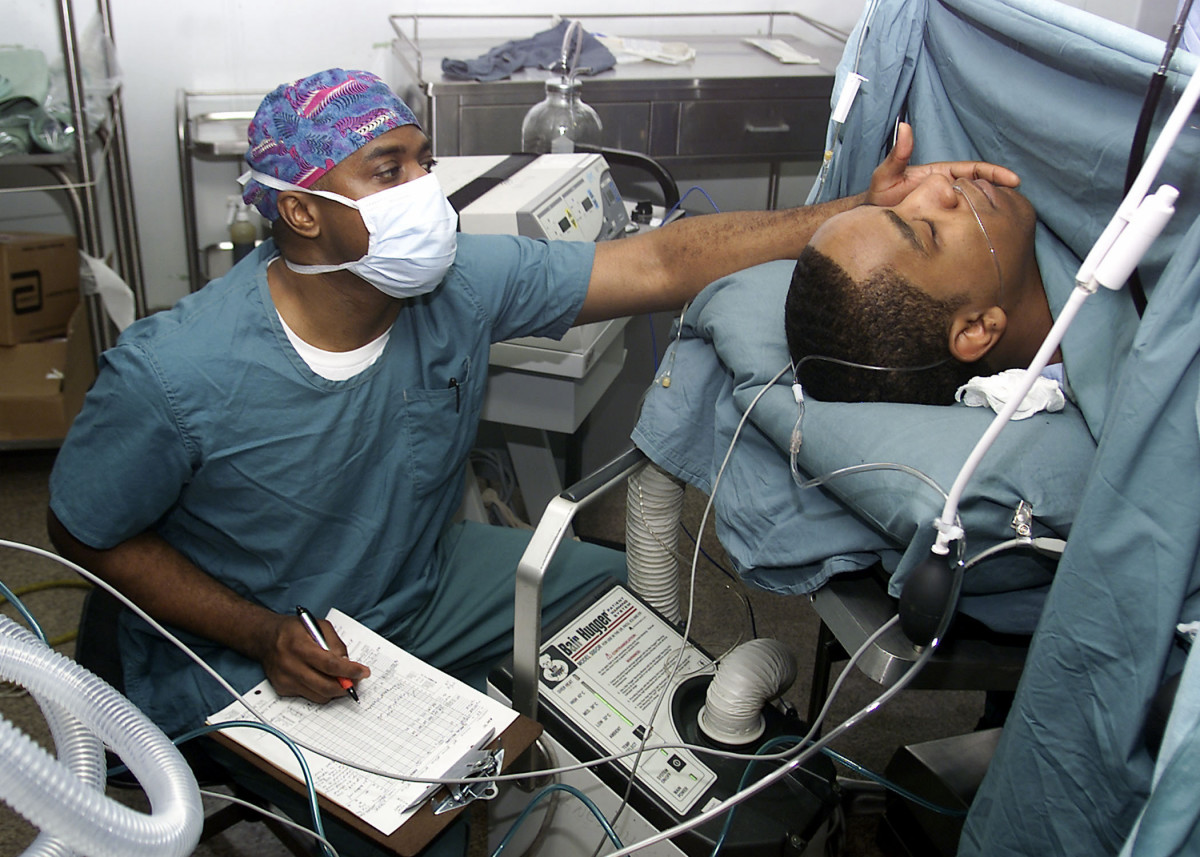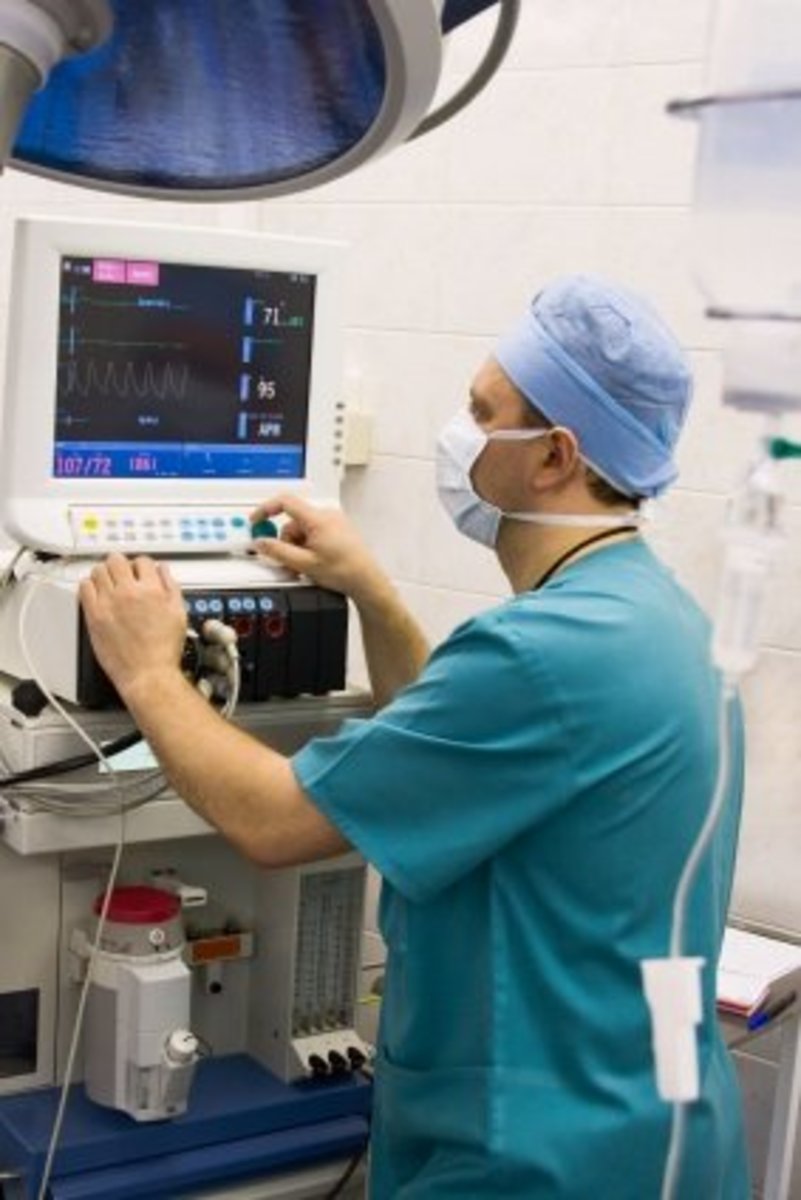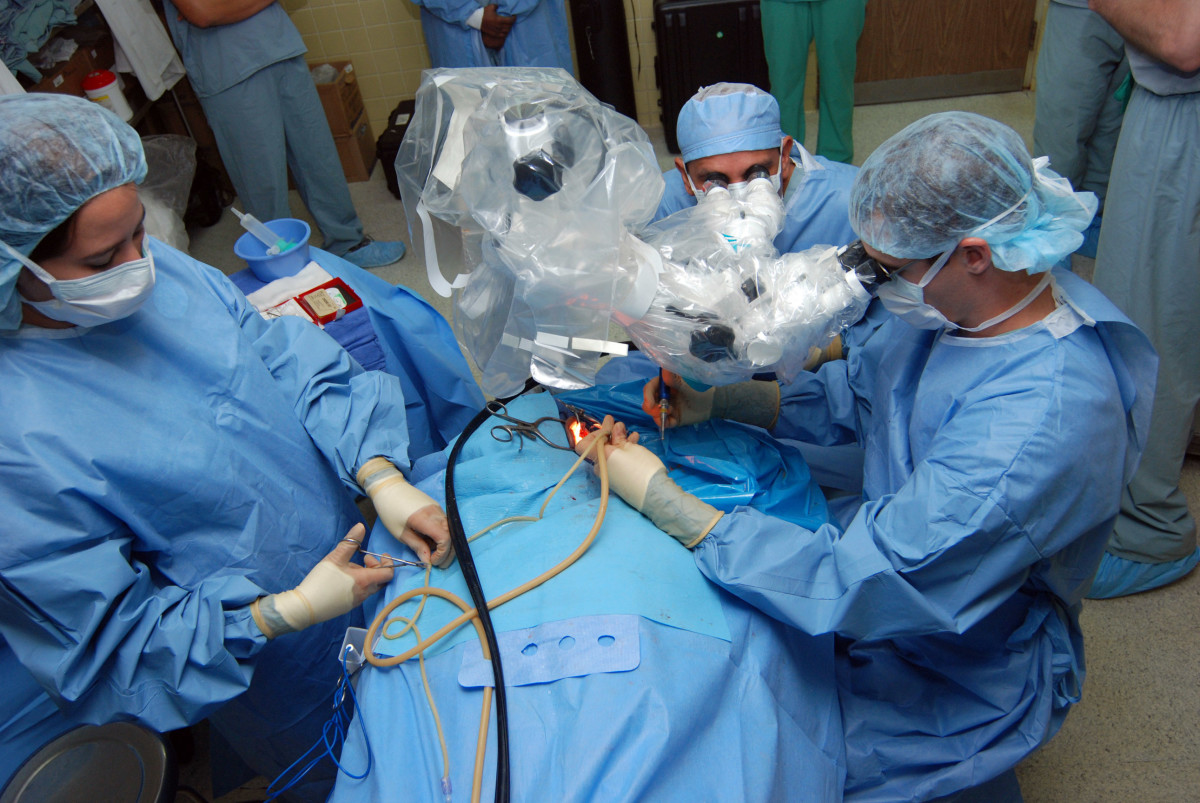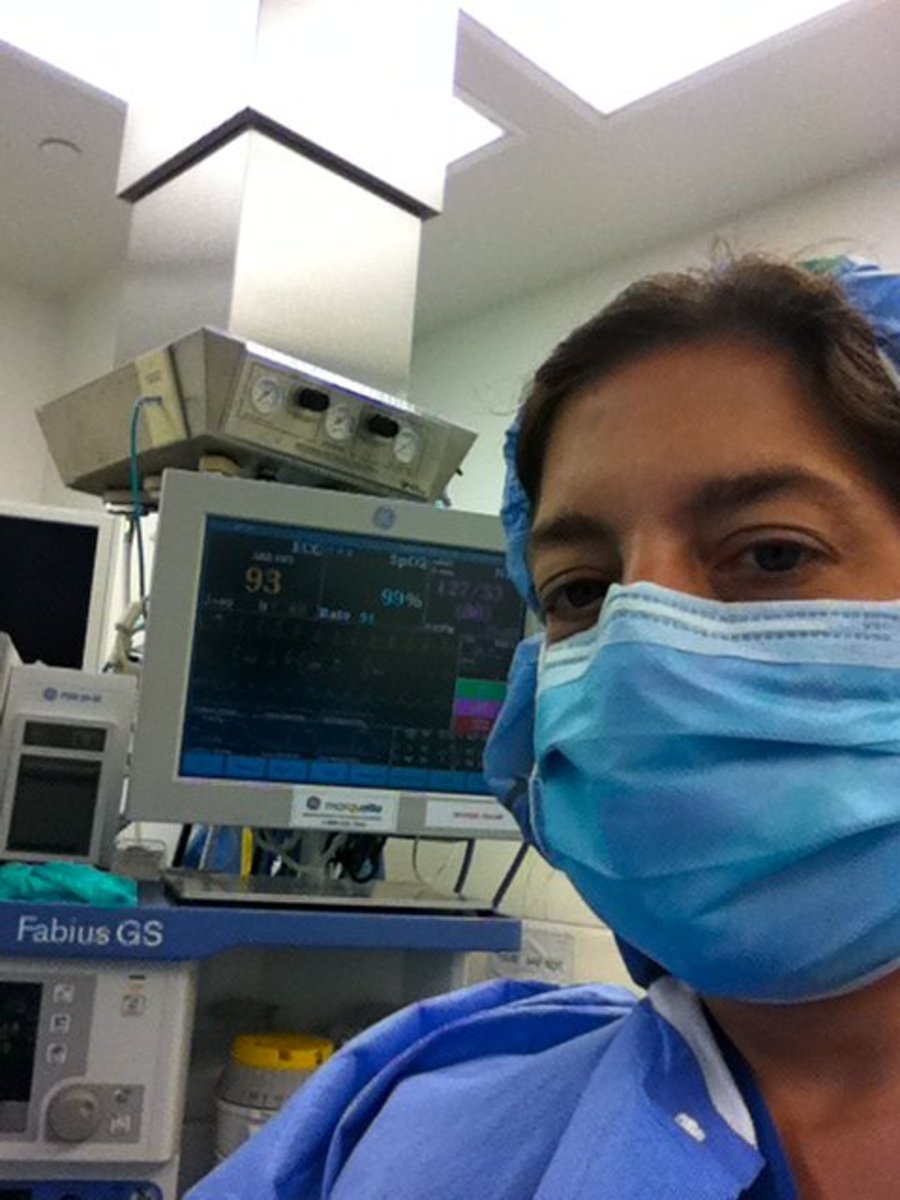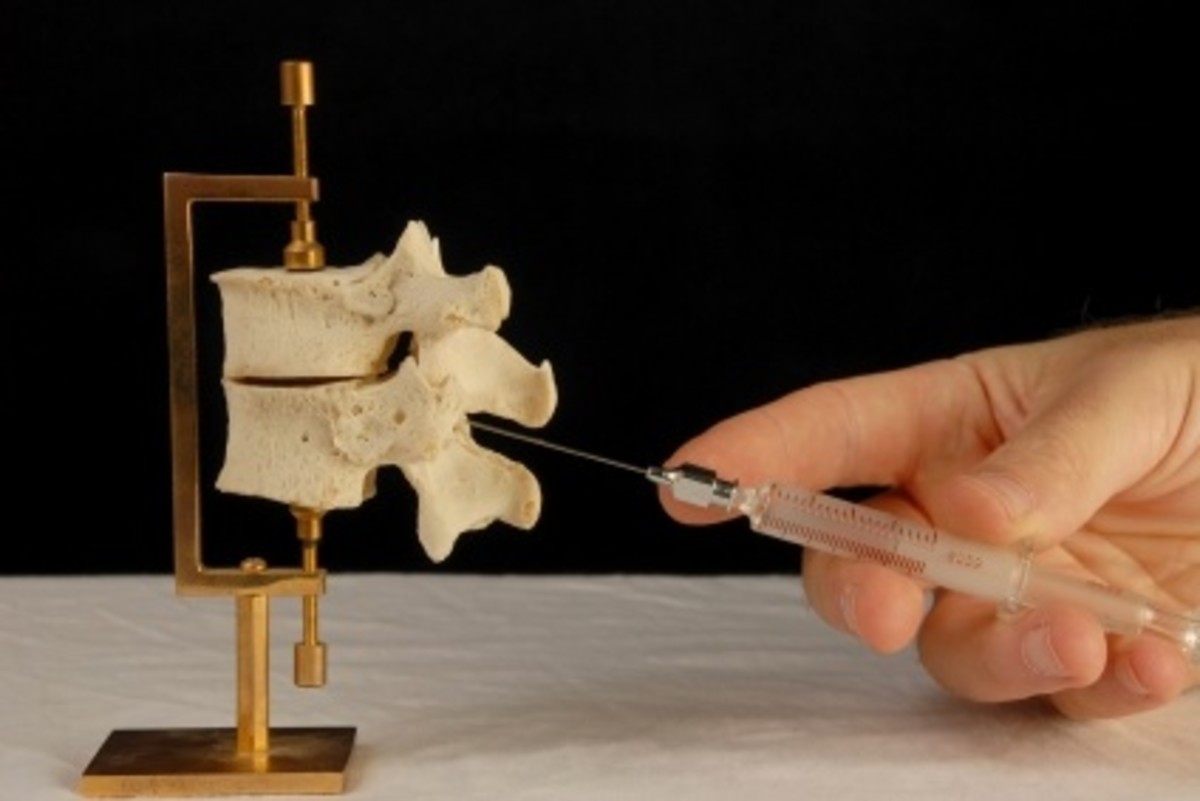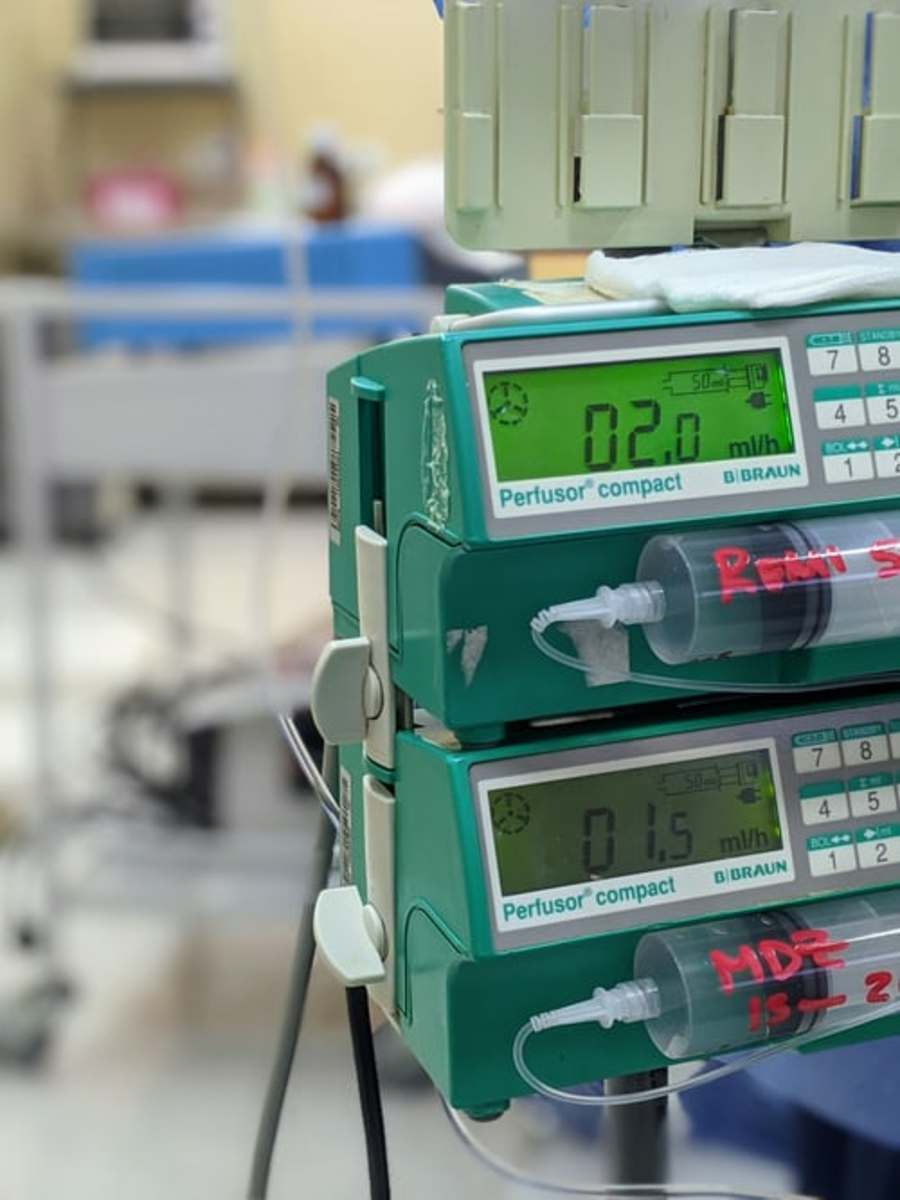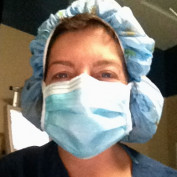 84
84Apprenticeship Alum
- 3
Irritable Bowel Syndrome vs. Inflammatory Bowel Disease
Irritable bowel syndrome and inflammatory bowel disease both affect the digestive system. While both can be quite distressing and even debilitating, they are quite different entities.
- 7
How to Calm Yourself Down Before a Day Surgery Procedure
As an anesthesiologist, I see many people facing surgery, some for the first time. Find out the best ways to calm yourself down before day surgery.
- 14
Fear of Needles and the Vasovagal Reaction
Do you get clammy, sweaty, light-headed, hot, and nauseous when approached by a needle? This is not weakness. In this article, an anesthesiologist explains the vasovagal reaction.
- 3
Neuromuscular Blockers: Vecuronium and Rocuronium
Vecuronium and rocuronium are commonly used neuromuscular blockers. The medical professionals who use them may call them "paralytics" or "muscle relaxants." Here's what you need to know.
- 1
Diabetes and Anesthesia: What Are the Risks?
Diabetes is a systemic disease affecting the whole body. Both type I and type II diabetes present risks that must be considered by the anesthesiologist before, during, and after surgery.
- 6
How Does the Neuromuscular Blocker Succinylcholine Work?
It's scary to hear a drug referred to as a "paralytic," but sometimes their administration is medically necessary. Neuromuscular blocking agents are used to make anesthesia and surgery safer.
- 5
Drugs Used During Anesthesia: Neuromuscular Blocking Agents
An anesthesiologist explains why your muscles sometimes need to be reversibly paralyzed during anesthesia. Neuromuscular blocking agents are used to achieve this goal. Learn how these drugs work to keep muscles from moving.
- 9
What Is Propofol? The "Michael Jackson Drug" in Anesthesia
As an anesthesiologist, I sometimes hear patients ask me, "Are you going to use the 'Michael Jackson Drug' on me?" Propofol is is safe and effective when administered by qualified professionals.
- 5
How Does Anesthesia Gas Work?
Have you been under anesthesia gas? Would it scare you to know that no one really knows how anesthesia gases work? As amazing as it is, it's true, as explained here by a physician anesthesiologist.
- 10
Regional Anesthesia: Definition and Examples
Regional anesthesia refers to numbing a region of the body rather than the whole body. An anesthesiologist discusses different techniques to induce regional anesthesia.
- 8
Fentanyl for Pain Management: Use and Abuse
Fentanyl, a synthetic opioid pain medication, is a powerful drug. Its use in the operating room is routine and valuable, as explained in this article. Abuse and addiction to fentanyl are dangerous and often deadly, even with just one use.
- 5
Patient Monitoring During Anesthesia
The anesthesiologist monitors and responds to changes in your vital signs during your entire surgery. Heart rate and rhythm, blood pressure, oxygen level, breathing, and other parameters give the anesthesiologist the information needed to keep you safe and comfortable during an anesthetic.
- 11
The Doctor Patient Relationship: Is Informal OK?
Do you want your doctor to remain strictly formal in your interactions, or do you prefer a more personal discussion? Here, a doctor discusses the potential usefulness-and pitfalls- of having more informal, personal relationships with patients. Let us know what you think.
- 24
Lidocaine Side Effects and Toxicity
Lidocaine is commonly used for local anesthesia. While its use is safe when dosing guidelines are followed, there are some risks, complications, and potential toxicity issues to understand.
- 3
Balanced Anesthesia Achieved by Combining Anesthesia Agents
Ever wonder exactly what medications an anesthesiologist uses to make sure you don't remember or feel your surgery? It is actually a combination of many drugs. By using multiple medications to administer 'balanced anesthesia', the anesthesiologist can maximize the beneficial effects of each drug...
- 28
Interscalene Block: Nerve Block for Shoulder Surgery
An interscalene block of the brachial plexus is used to provide pain relief during and after shoulder surgery. Find out from an anesthesiologist what you should know before having this type of block.
- 9
Femoral Nerve Block: Pain Control for Knee Surgery
Femoral nerve blocks are useful for knee and thigh surgery. An anesthesiologist explains the technique, uses, and risks of the commonly used femoral nerve block.
- 3
What's the Difference Between Epidural and Spinal Anesthesia?
Ever wonder "What is the difference between a spinal and an epidural?" Read an anesthesiologist's response to this question.
- 6
Spinal Block for C-Section Surgery
Spinal anesthetics are commonly used for cesarean sections. This physician-authored page explains the technique of administration of spinal anesthetics for surgical delivery.
- 37
What if You Need Anesthesia and Surgery While Pregnant?
Misformation about pregnancy and anesthesia abounds. From the perspective of a board-certified doctor, some risks do exist, but it's not as dangerous as commonly perceived.
- 17
The Endotracheal Tube (ETT) and the Laryngeal Mask Airway (LMA) for General Anesthesia
One of the most important—and dangerous—tasks assigned to an anesthesiologist is securing the airway of the unconscious patient. Find out how and why this is done from a certified anesthesiologist.
- 11
Having a Spinal Block for C-Section and I'm Terrified!
An anesthesiologist answers questions about fears before c-section with spinal anesthesia. Fear of the unknown, needles, complications and so on are very common. Serious problems with spinal anesthesia for cesarean section are rare, though.
- 5
What Are Conscious Sedation, MAC Sedation, and Twilight Sleep?
Are you familiar with the terms used to describe sedation, anesthesia, and analgesia? An anesthesiologist explains conscious sedation, MAC sedation, and twilight sleep.
- 3
Local Anesthesia: Types, Uses, and Risks
What is local anesthesia? How do local anesthetics work? And, most importantly, what do you need to know about their use and risks as a health consumer or patient?
- 15
Anesthesia and Asthma
Asthma and general anesthesia both affect the airways, lungs, and breathing. A certified anesthesiologist explains what asthmatics need to know in order to safely proceed with surgery.
- 129
Gas Pain After Surgery: Why It Happens and How to Relieve It
Gas pain after surgery is a common complaint. This article offers tips and advice from a board-certified anesthesiologist on how to prevent and treat post-operative gas pain.
- 10
Is General Anesthesia Safe for People With High Blood Pressure?
Need surgery? Wondering if anesthesia is safe for you? High blood pressure can be a problem during general anesthesia and surgery. If you are facing surgery, controlling your hypertension will make your anesthetic as safe as possible.
- 15
Treatments for Acid Reflux During Anesthesia: Preventing Aspiration Pneumonia
Acid reflux under anesthesia can lead to aspiration pneumonia and lung damage. Learn from an anesthesiologist how to protect yourself from these complications.
- 28
How Does Anesthesia Affect the Body?
The entire body is affected by an anesthetic. Here, a board-certified anesthesiologist gives an overview of the effects of anesthesia from head to toe.
- 36
Effects of Anesthesia on the Heart
A board-certified anesthesiologist discusses the common cardiac effects of general anesthesia and also explains why there is some variability.
- 45
Why Do I Have Urinary Bladder Retention After General Anesthesia?
Bladder retention after general anesthesia is fairly common. Find out why this happens. Understand your own risk factors and related complications from a board-certified anesthesiologist.
- 69
Post-Spinal Anesthesia Side Effects
Post-spinal anesthesia side effects can result from the needles, the technique or the medications used. Most side effects are minor and short-lived.
- 11
Sjogren's Syndrome and General Anesthesia
If you have Sjogren's syndrome, you may worry about how you will tolerate anesthesia and surgery. There are unique considerations with Sjogren's syndrome and general anesthesia, but with a little information and collaboration with your health care providers, your anesthetic will be as safe and...
- 26
Seizures After Anesthesia
Anesthesia has risks. Seizures after anesthesia are a rare, but they are a recognized complication in the post-operative period. Learn about the risk factors for this complication.
- 46
Postoperative Cognitive Dysfunction (POCD): Confusion After Surgery
Postoperative cognitive dysfunction is a state in which a decline in learning, memory, and/or personality changes persist long after the surgery. Here's what you need to know.
- 9
PONV: Postoperative Nausea and Vomiting, a Common Side Effect of Anesthesia
Postoperative nausea and vomiting are the most common side effects after anesthesia and surgery. Find out from a board-certified anesthesiologist how to prevent and treat this unpleasant side effect.
- 14
A Day in the Life of an Anesthesiologist
Anesthesiologists are medical doctors who specialize in the care of patients before, during and after surgery. Whether the anesthetic is routine and easy or emergent and life-threatening, the anesthesiologist is with the patient the whole time they are in the operating room.
- 86
Prednisone: Effects, Side Effects, and How It Changed My Life Forever
The corticosteroid prednisone definitely saves lives but has some serious and life-long consequences. Here, a physician and patient formerly on long-term prednisone discusses the pros and cons of this potent medication.
- 380
6 Common Anesthesia Side Effects: What to Expect
Know what to expect and how to prevent and/or treat the most common after-effects of anesthesia, including nausea, sore throat, confusion, muscle aches, itching, and emotional outbursts.
- 11
Guide to Epidural Anesthesia for Labor and in Surgery
What is an epidural? Learn about the risks, benefits, and potential complications from a board-certified anesthesiologist.
- 55
Winter Driving Tips for Lake Tahoe: Tire Chains, Snow, and Mountain Driving
A Tahoe local tells you what you need to know to drive through the mountains safely in wintertime. Planning, common sense, and the tips presented here prepare you for your winter trip to Lake Tahoe.
- 13
Anesthesia Awareness: What If I Am Awake During Surgery?
Being awake under anesthesia is a serious and traumatic event. A board-certified anesthesiologist discusses this frightening complication, risk factors, and why it most likely won't happen to you.
- 5
Catalytic vs. Non-Catalytic Wood-Burning Stoves
Here's what you need to consider when deciding whether your new wood-burning stove should be a catalytic or non-catalytic model.
- 28
What You Should Know About a Spinal Anesthesia Block
Learn the most important facts about spinal anesthesia, what to expect, side effects, and potential complications to prepare for your surgery.
- 234
Guide to General Anesthesia: What You Need to Know Before Going Under
A board-certified anesthesiologist explains what to expect when you have general anesthesia, possible side effects, and potential complications. Frequently asked questions are answered, as well.
